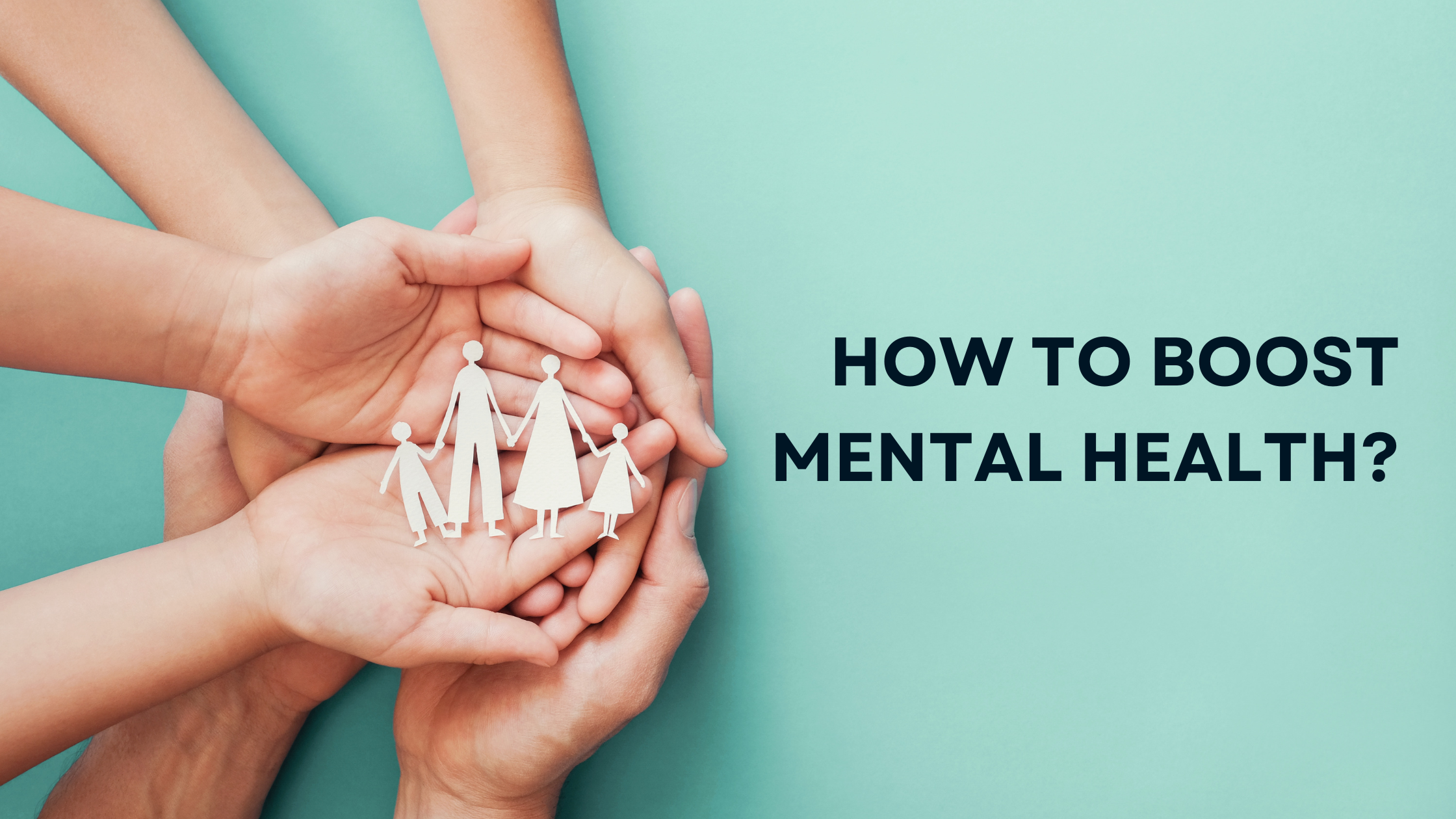How to Boost Mental Health: In this busy life, prioritizing mental health is important for overall well-being. The needs of work, relationships, and day-to-day challenges can take a toll on our mental state, making it critical to embrace strategies that boost mental strength and happiness. In this article, we will talk about practical tips and lifestyle changes aimed at boosting mental health.
Also Read:
- How to Quiet My Mind?
- How to Stop Feeling Empty?
- How to Deal With Depressive Thoughts?
- How to Stop Daydreaming?
How to Boost Mental Health
Prioritize Self-Care
Self-care is the basic step of mental health. Taking time for oneself is not an extravagance but a necessity. Engage in activities that bring joy and relaxation, whether it’s reading a book, taking a warm bath, or spending time in nature. Setting a regular self-care routine can deliver a stable foundation for emotional well-being.
Maintain a Healthy Lifestyle
A balanced lifestyle contributes greatly to mental health. Regular exercise has been confirmed to ease stress and anxiety while boosting the release of endorphins, the body’s natural mood elevators. Getting sufficient sleep is equally important; it allows the brain to recharge and process emotions. Additionally, a nutritious diet with a focus on whole foods can completely affect both physical and mental health.
Develop Positive Relationships
Social connections play a key role in mental health. Cultivate positive relationships with family and friends, as they provide a support system during difficult times. Surround yourself with people who uplift and inspire, and don’t hesitate to seek professional help when needed. Socializing, whether in person or virtually, helps in fighting feelings of isolation and loneliness.
Practice Mindfulness and Meditation
Mindfulness and meditation techniques are effective tools for managing stress and enhancing mental clarity. These practices promote living in the present moment, promoting a sense of peace and tranquility. Guided meditation sessions, deep-breathing exercises, and mindfulness apps can be useful resources for integrating these practices into your everyday routine.
Set Realistic Goals
Setting attainable goals, both short-term and long-term, delivers a sense of meaning and achievement. Break larger goals into smaller, manageable tasks, qualifying for a step-by-step approach. Celebrate small wins, and acknowledge that setbacks are a natural part of the journey. This mindset shift can ease the pressure associated with perfectionism and boost self-esteem.
Limit Screen Time
While technology has its advantages, excessive screen time can negatively affect mental health. Continuous exposure to social media and digital information excess can lead to feelings of inadequacy and stress. Set boundaries for screen time, engage in offline activities, and prioritize face-to-face interactions with people. Creating a digital detox plan can greatly contribute to a healthier mental state.
Foster a Growth Mindset
Welcome challenges as opportunities for growth rather than impossible obstacles. A growth mindset enables strength and a positive outlook on life. View defeats as learning experiences, and concentrate on the process rather than fixating on outcomes. This shift in mindset can lead to boosted confidence and a more flexible approach to life’s ups and downs.
Engage Yourself in Creative Things
Expressing oneself through creative outlets, such as art, music, or writing, can be therapeutic. These activities deliver an avenue for self-expression and can act as a healthy emotional release. Even for those who don’t consider themselves artists, engaging in creative pursuits can offer a sense of achievement and joy.
Become a Volunteer
Helping others can have a deep impact on mental well-being. Volunteering not only contributes to a sense of purpose but also enables a connection with the community. Acts of kindness, whether big or small, create a positive wave effect, benefiting both the giver and the recipient. Find opportunities to give back and make a meaningful difference in the lives of others.
Take Professional Support
If mental health challenges continue or become overwhelming, seeking professional help is a critical step. Therapists, counselors, and mental health professionals can offer guidance, support, and managing strategies tailored to particular needs. Breaking the stigma surrounding mental health is important, and reaching out for help is a sign of strength.
At The End
Prioritizing mental health is a continuous journey that demands commitment and self-reflection. By integrating these strategies into everyday life, people can develop a resilient mindset, promote positive relationships, and steer the complexities of modern living with greater ease. Remember, boosting mental health is a holistic endeavor, enclosing physical, emotional, and social well-being. Taking deliberate steps towards mental wellness not only benefits the person but also contributes to a healthier and more understanding society.








